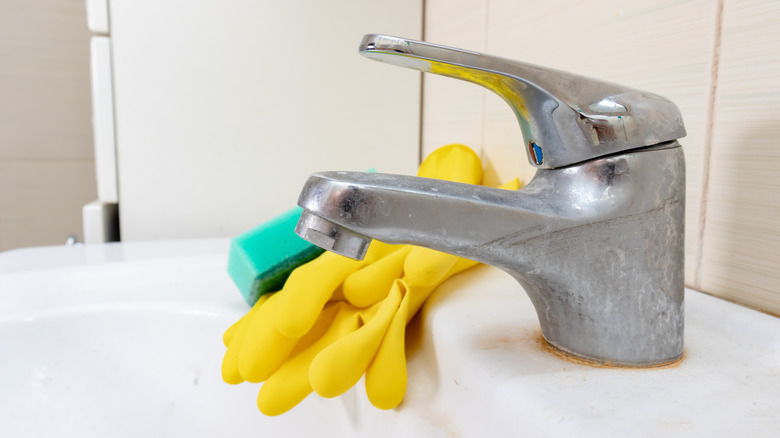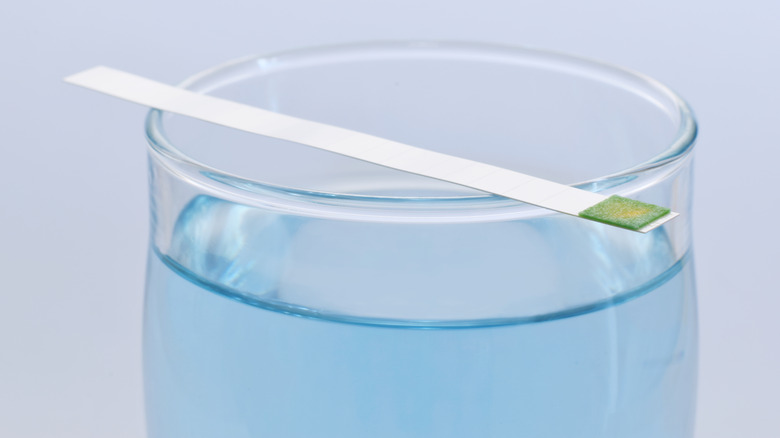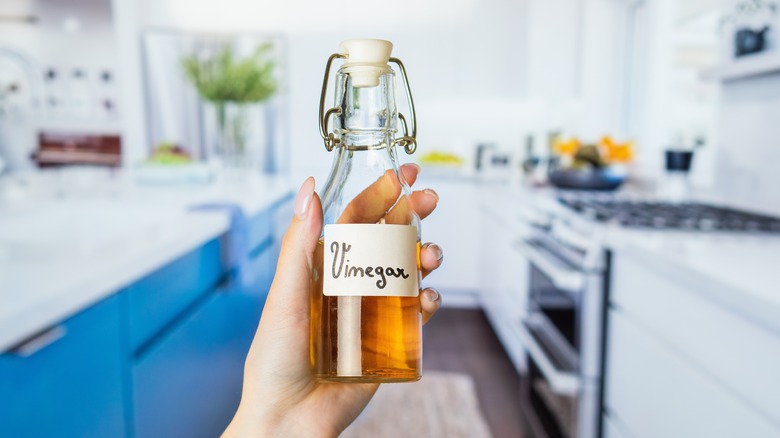The Simple Way To Test For Hard Water
We may receive a commission on purchases made from links.
Those with streaked drinking glasses, dirty shower heads, and dry skin may have hard water running through their home's pipes. This means that the water contains minerals like magnesium and calcium, which make soap and detergents less effective. If you've been dealing with any of these issues, you may want to test your home's water, and there's an easy way to do this. All you'll need is a mason jar with a lid or a plastic bottle with a cap and pure dish soap.
To conduct this test, simply fill your container with about 10 ounces of tap water and 10 drops of soap, put on the lid or cap, and shake for 10 seconds. Once you're done, set the container on a flat surface and see what happens to the soap. If it creates a tiny layer of bubbles at the top while the rest of the water is cloudy, you're most likely dealing with hard water. If you had soft water, there would be lots of bubbles, and the water would be pretty clear.
More accurate testing methods
While the soap test is the easiest method, it may not be the most accurate, and it won't tell you the level of water hardness you're dealing with. If you want a more accurate test, you could send some of your tap water to a laboratory, but this will take time and could cost more money.
Another easier but more accurate than the soap method way to check your water hardness is with an at-home strip test, which you could purchase from Amazon. To conduct this test, you'll simply put a strip into a cup of tap water and observe what color it turns, which indicates how many minerals are present. Another at-home test comes with a small bottle of liquid and is also available on Amazon. To use this type, you'll fill a cup from the faucet and slowly add the bottle's solution, keeping track of how many drips it takes to turn the water blue. The amount of solution you need will indicate the level of water hardness.
How to combat hard water
If you find that your home has hard water, there are a few easy remedies to combat it. The first is using vinegar to clean pipes, faucets, small appliances, and dishes. To clean a shower or faucet head, cover a rag in vinegar and wrap it around it. If you're having trouble with your coffee maker, run a cycle of vinegar through it to clear it up. Soak dishes or other items in this ingredient to remove mineral buildup and streaks as well.
You could also invest in a filtered showerhead, which you could buy on Amazon. Or, if your primary concern is brittle hair, try a clarifying shampoo, also on Amazon. If you want to improve the effectiveness of your dishwasher, use a rinsing agent, which is sold at Target. However, while all these products will combat the negative consequences of hard water in the short term, they aren't long-term solutions. If you really want to get rid of the minerals, you'll need to purchase a water softener, which can cost anywhere from $500 to $6,000.


